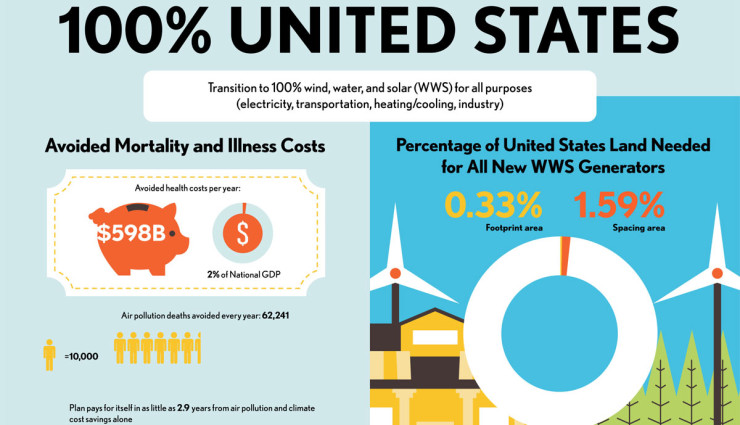This report by Lappeenranta University of Technology (Finland) and Energy Watch Group (Germany) models a global energy system based on a 100% renewable energy power sector. The authors find that a global transition to 100% renewable electricity is feasible at every hour throughout the year and more cost effective than the existing system, which is largely based on fossil fuels and nuclear energy. As the report concludes, “Energy transition is no longer a question of technical feasibility or economic viability, but of political will.” The report is part of a larger study analyzing the entire global energy system, including electricity, heat, mobility, desalination and industrial energy demand.
This white paper by the International Renewable Energy Agency outlines a discussion of the most significant challenges to the scale-up of renewable energy investment and development that the Coalition for Action Business and
Investors Group members have encountered while delivering projects throughout the world. The paper additionally describes a selection of available tools and policies recommended by the Group to overcome these challenges.The focus is on solar and wind as the two dominant, rapidly growing technologies in the power sector that are now competitive, but the analysis could apply to other power-producing technologies as well.
This groundbreaking study presents roadmaps for each of the 50 United States to convert their entire energy systems (including electricity, transportation, heating/cooling, and industry) to renewable sources including wind, water, and sunlight.
This report from the Environmental and Energy Studies Institute finds that renewables accounted for two-thirds of new U.S. generating capacity in 2015 and that new renewable capacity is 3,500 times greater than new coal capacity.
This report by the International Renewable Energy Agency provides the first quantification of the macroeconomic impact of doubling the global share of renewables in the energy mix by 2030. The report found that accelerating the deployment of renewable energy will fuel economic growth, create new employment opportunities, enhance human welfare, and contribute to a climate-safe future.
This report by the Institutional Institute for Sustainable Development and Global Subsidies Initiative, contends that fossil-fuel subsidies can act as a barrier to the development and deployment of renewable energy technologies.
In the run-up to COP21, The World Energy Outlook provided a report on the competitive position of fast-growing renewable energy technologies in different markets and implications this might have for policy. The analysis also tracks for the first time energy use by efficiency policies around the world and the ways in which product design, recycling and reuse can contribute to energy savings. Note: Energy Watch Group argues that this report does not sufficiently account for recent developments including fossil fuel divestment (see below).
In this report, the Energy Watch Group concludes that the World Energy Outlook’s latest projections did not take into account recent developments, including measures on climate protection and divestment of finance from the conventional energy sector. Therefore, policy-makers are advised to consider the expansion of renewables well beyond the WEO projections in their energy policies in order to avoid stranded investments in future.
Will We Ever Stop Using Fossil Fuels? is a scholarly article that concludes that activist and aggressive policy choices are necessary to drive reductions in the consumption of fossil fuels and greenhouse gas emissions.



 Go100Percent.org is a virtual gathering space for anyone striving toward a 100% renewable energy energy goal, as well as those who want to learn from them. The Renewables 100 Policy Institute launched the Go 100 Percent Renewable Energy project in 2010.
Go100Percent.org is a virtual gathering space for anyone striving toward a 100% renewable energy energy goal, as well as those who want to learn from them. The Renewables 100 Policy Institute launched the Go 100 Percent Renewable Energy project in 2010.
